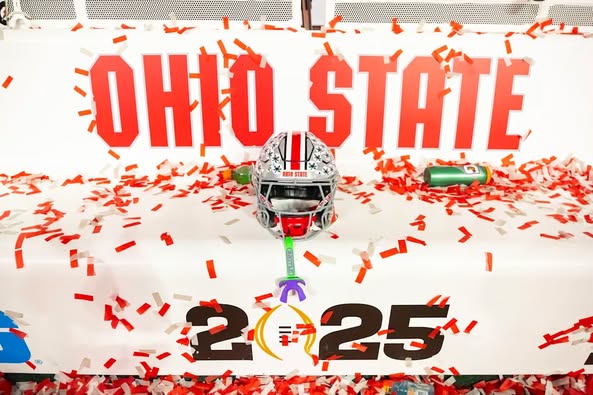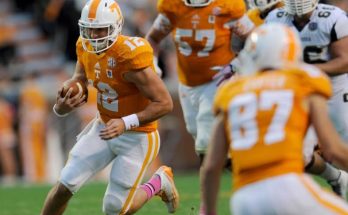In a move that blends sports passion with political ambition, an Ohio lawmaker has introduced legislation aimed at limiting noon kickoffs for Ohio State football games. The proposed bill, brought forth by State Senator Bill Reineke (R-Tiffin), seeks to ensure that the Buckeyes’ most anticipated games are played later in the day to benefit fans, businesses, and arguably the team itself. While some are lauding the move as a bold stand for Ohio traditions, others see it as legislative overreach into the operations of college football scheduling.
This 1500-word analysis dives into the background, motivations, legal viability, public reactions, and broader implications of a bill that could dramatically shift how college football is consumed in Ohio — and potentially across the country.
The Bill in Focus: What It Proposes
Senator Reineke’s proposed legislation, tentatively titled the “Game Day Experience Enhancement Act,” does not outright ban noon kickoffs but aims to “discourage regular scheduling of home games at 12:00 PM EST” for The Ohio State University (OSU) football team. Specifically, the bill proposes:
- That no more than two noon kickoffs be permitted per season for OSU home games.
- That OSU home games scheduled on Saturdays be played no earlier than 3:30 PM EST unless both teams agree otherwise and fans are given 60 days’ notice.
- That the Big Ten Conference coordinate with local stakeholders — including the City of Columbus, Ohio Stadium management, and the OSU Athletic Department — to consider fan accessibility, business interests, and team readiness in the kickoff scheduling process.
The bill stops short of enforcing penalties, but it does encourage the Ohio General Assembly to “review state appropriations to collegiate athletics” if OSU and the Big Ten do not comply with the spirit of the legislation.
Why Now? Timing and Motivations
The timing of this bill is no coincidence. Over the past few seasons, Buckeyes fans have voiced growing frustrations over early kickoffs, particularly when marquee matchups such as Ohio State vs. Penn State or Ohio State vs. Wisconsin have been scheduled at noon.
Senator Reineke explained his motivations at a press conference on the steps of the Statehouse:
“Ohio State football is more than just a game — it’s a cultural phenomenon. Noon kickoffs dampen the fan experience, limit economic impact for local businesses, and even challenge the competitive readiness of our players. This bill gives fans a voice.”
The broader backdrop is television rights. With the Big Ten’s lucrative media deal — a multi-billion-dollar agreement involving FOX, CBS, and NBC — networks are guaranteed premium game inventory. FOX, which heavily promotes its “Big Noon Saturday” product, has featured OSU numerous times in the noon slot, including against top-ranked opponents.
Critics argue that the current arrangement prioritizes TV ratings and advertising revenue over fan convenience and traditional game-day experiences.
The Impact on Fans and Businesses
One of the main arguments in favor of the bill is its potential to revitalize the game-day experience. For fans, early wake-up calls, abbreviated tailgates, and colder temperatures (particularly in November) can dampen enthusiasm. Later games allow for:
- Extended pre-game rituals, such as tailgating and band performances.
- More travel flexibility for fans coming from across the state or region.
- Greater economic stimulation for restaurants, hotels, and retailers.
Tyler Martin, owner of the Varsity Grille just north of campus, estimates his business sees a 15-20% higher profit margin on days when the Buckeyes kick off at 3:30 or later.
“Noon games kill momentum. People don’t show up for breakfast tailgates the same way they do for dinner and drinks. Later starts are just better for business.”
Columbus Mayor Andrew Ginther has not formally endorsed the bill but released a statement acknowledging that “kickoff timing has a tangible impact on the city’s weekend economy.”
Pushback from Broadcasters and Network Interests
Not surprisingly, the biggest resistance to the bill has come from the very networks that bankroll college football. FOX Sports released a pointed statement in response to the proposed legislation:
“Broadcast scheduling is determined by contractual rights, competitive balance, and viewership trends. Any attempt to interfere with those decisions risks undermining the broader collegiate athletic ecosystem.”
FOX executives privately note that the Big Noon Saturday time slot has been a ratings success, drawing millions of viewers nationally — particularly when Ohio State is involved. With a coast-to-coast audience, noon Eastern translates to 9:00 AM Pacific, giving FOX a major edge over rival networks.
While the bill does not directly force a change, it implicitly pressures OSU to prioritize local considerations over national broadcast demands. Some legal experts believe this could trigger challenges from the NCAA or television rights holders on grounds of “interference with contractual obligations.”
Ohio State’s Response: Caught in the Middle
The Ohio State University has yet to take an official position on the legislation. However, athletic director Gene Smith — who is retiring this summer — offered a diplomatically worded statement:
“We are always evaluating what’s best for our student-athletes, our fans, and the integrity of our program. We appreciate the legislature’s interest in enhancing game-day experiences and look forward to constructive dialogue with all parties.”
Behind the scenes, OSU leadership is said to be wary of setting a precedent where lawmakers influence scheduling decisions. At the same time, they recognize growing unrest among alumni and season-ticket holders who see noon kickoffs as a downgrade in atmosphere and prestige.
Incoming athletic director Ross Bjork, who will assume duties in July, may have to balance these competing interests. His first few months could set the tone for OSU’s evolving relationship with Big Ten media partners.
Legal Ramifications: Can This Bill Hold Up?
There is heated debate in legal and sports circles over the constitutionality and enforceability of the proposed bill.
Professor Megan Dobbs, a sports law expert at Ohio State’s Moritz College of Law, believes the bill falls into murky territory:
“It’s difficult to see how the state can enforce this without running afoul of contractual law and First Amendment protections related to broadcast decisions. It’s symbolic more than substantive.”
On the other hand, Reineke and his co-sponsors frame the bill as an economic policy — not a sports regulation — and thus argue it’s well within the legislature’s purview.
“We’re not banning anything. We’re advocating for responsible scheduling that reflects the values of our state,” Reineke emphasized.
Still, should the bill pass, it’s likely to face immediate legal challenges from network lawyers and NCAA attorneys alike.
Public Opinion: Fans Weigh In
In an informal poll conducted by The Columbus Dispatch, 72% of respondents supported limiting noon kickoffs, while 18% opposed it and 10% were undecided. Social media tells a similar story: Ohio State fans have flooded X (formerly Twitter), Reddit, and Facebook with enthusiastic support for the bill using hashtags like #BanTheNoon and #PrimeTimeBucks.
Alumni groups — particularly in Cleveland, Cincinnati, and Dayton — argue that later games make the day-trip experience more enjoyable and accessible. OSU’s Alumni Association has yet to endorse the bill but indicated they are “reviewing the proposal with great interest.”
What Comes Next: Political Traction and the Road Ahead
The bill is expected to be introduced in the Ohio Senate Education Committee within the next few weeks. Early signs suggest bipartisan support, although some legislators have called it a “distraction from more pressing issues.”
If passed through committee, it could reach the full Senate by early fall — potentially just in time for the 2025 football season. Whether it becomes law or not, the bill already has people talking.
More importantly, it forces Ohio State — and perhaps other major football programs — to re-evaluate the balance between commercial partnerships and fan-centric experiences.



